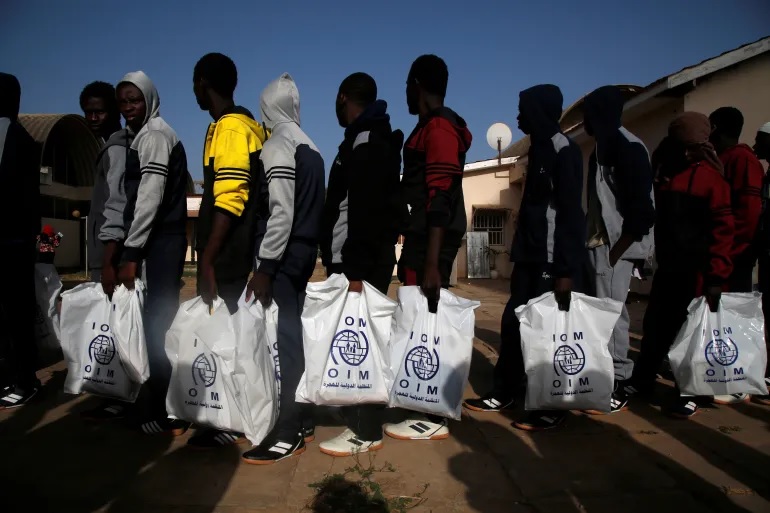
Gambian Migrants Struggle After Deportation, Dream of Returning to Europe
Gambian deportees who embarked on the hazardous "backway" to Europe now face significant difficulties after being returned to their home country. Many migrants had left in search of better opportunities but returned with unfulfilled hopes. Despite the hardships experienced in Europe, several deportees remain determined to return in hopes of improving their circumstances.
Alagie, a 34-year-old migrant, left The Gambia in 2014 with aspirations of supporting his family but was deported in 2022 after spending eight years in Europe. He, like many others, traveled through Morocco, Algeria, and Libya before making the dangerous Mediterranean crossing to Italy. Alagie eventually found work as a petrol station attendant but struggled to secure asylum. Following his deportation, he now faces unemployment and difficulties in supporting his wife and child.
Irregular migration remains a pressing issue in The Gambia, with many young people risking dangerous journeys to Europe, driven by high unemployment and limited economic prospects. Frontex, the European Union’s border control agency, reports that more than 35,000 Gambians arrived in the EU between 2015 and 2022. With the political transition in The Gambia in 2017, fewer asylum applications from Gambians have been accepted, leading to the deportation or voluntary return of over 5,000 migrants since then.
Musa Faye, who lived in the United States for two decades before being deported in 2017, shares similar challenges. Now working as a taxi driver in Banjul, Faye expresses frustration over the difficulty of earning a living and regrets not being able to bring his family to the U.S.
Social media has played a role in influencing migration decisions. Rohey, a migrant who left for Libya in 2010, was motivated by images shared by friends living abroad. However, upon reaching Europe, her expectations did not match reality. Rohey returned to The Gambia in 2019 and now works in a salon but continues to reflect on the difficulties she faced during her journey.
Morro, a survivor of a tragic boat accident that claimed the lives of over 60 Gambians off the coast of Mauritania in 2019, now advocates against irregular migration through the D419 association, which raises awareness about the risks of such journeys. Despite the dangers, Morro still dreams of finding a legal route to Europe to improve his family’s living conditions.
Many deportees express disappointment in their failed journeys but remain disillusioned by the lack of opportunities in The Gambia. With high youth unemployment and economic challenges, the desire to return to Europe persists for some, despite the associated risks.







